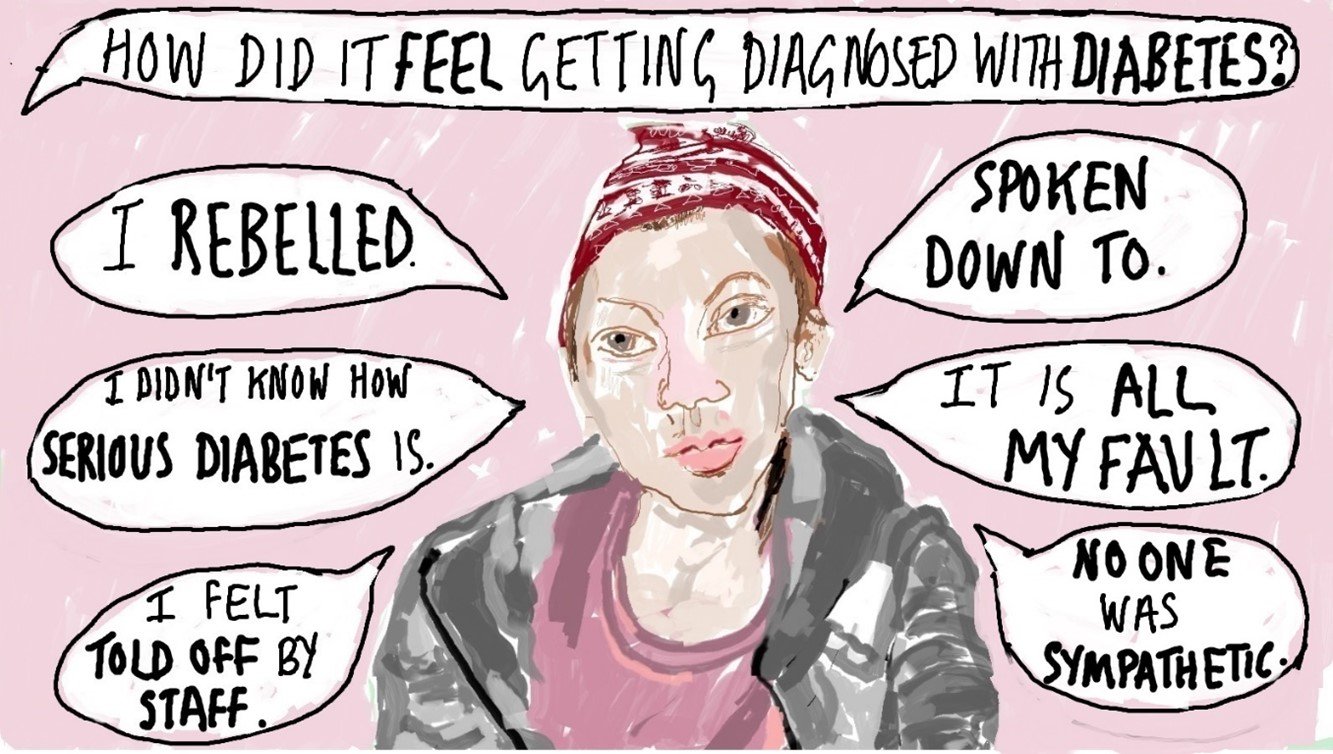Samantha Dorney-Smith, Nursing Fellow at the homeless and inclusion health charity Pathway, writes about a national partnership project which considered how to improve care for people experiencing homelessness with diabetes, and shares links to resources to support frontline workers.
‘People experiencing homelessness haven’t got uncomplicated diabetes…. They have complicated diabetes. Sometimes it’s even difficult for us to understand what kind of diabetes they have, and what treatment they need’. – Diabetes Consultant
People with diabetes who are homeless are at much higher risk of serious complications or death because of their condition, as well as the daily challenges of getting access to healthy food and adequate care. As a frontline worker working in homelessness, it can be hard to know how to help.
With funding from the Burdett Trust for Nursing, I led a national partnership project from April 2023 to June 2024 to consider how to improve care for people experiencing homelessness with diabetes. The very active steering group for the project involved inclusion health and specialist diabetes nurses, a Diabetes Consultant, a Specialist Inclusion Health GP, a Dietitian, an Optometrist, a Podiatrist, an Occupational Therapist and four Experts by Experience.
The project included a literature review, a review of safeguarding adult reviews, open access workshops, patient interviews, visits to areas of best practice, a University of Plymouth backed survey and 13 nurse led quality improvement projects. Homeless hostel workers and outreach workers were involved in the workshops, a survey, and were often part of the visits. The project leant heavily on the experiences of expert patients, aiming to inform clinical practitioners what it can feel like to interact with health services.

Picture: Interviewee Kellie talks about how she felt when she was told she had diabetes
The project also looked at the issue of self-neglect, and potential responses to non-engagement for people experiencing homeless with diabetes. For example, one patient interviewee was held under a Deprivation of Liberty Safeguards (DoLs) procedure for diabetes treatment after multiple attendances at Accident and Emergency, due to concerns about his executive capacity. His response being held in retrospect was: ‘I’m glad that happened. I needed someone to take control.’
Many clinical, client, and management insights were gained during the project, and further work is planned. For example, the project has resulted in the creation of a Faculty of Homeless and Inclusion Health Nutrition group. This group is being led by Dietitian Hannah Style who was involved on the steering group, and will look at (among other things) ways to improve the nutritional status of clients living in homeless hostels.
The resource outputs of the project are now available for use within the sector.
For homeless hostel workers and outreach workers these include:
- Top tips to improve care for homelessness workers – these focus on simple, practical actions you can take, that do not require any additional knowledge in the first instance
- A free e-learning course for both clinical practitioners and homelessness support workers. This course is deliberately written to be accessible by non-clinical workers, and fully explains all clinical terms.
- New information leaflets on diabetes and managing it from homeless charity Groundswell. These can be used to help you support any clients with diabetes.
- A Leaflet focusing on eye health for people with diabetes
- New Queen’s Nursing Institute Homeless and Inclusion Health Programme guidance
- Comprehensive Project Report, including the insights from the project, survey results, patient interviews, literature review etc.
If you would like to discuss diabetes care for people experiencing homelessness further you can reach out to me (Samantha) at samantha.dorney-smith@nhs.net or info@pathway.org.uk.
If you would like to get involved in the Faculty Nutrition group, please email faculty@pathway.org.uk and ask to be added to the group.
